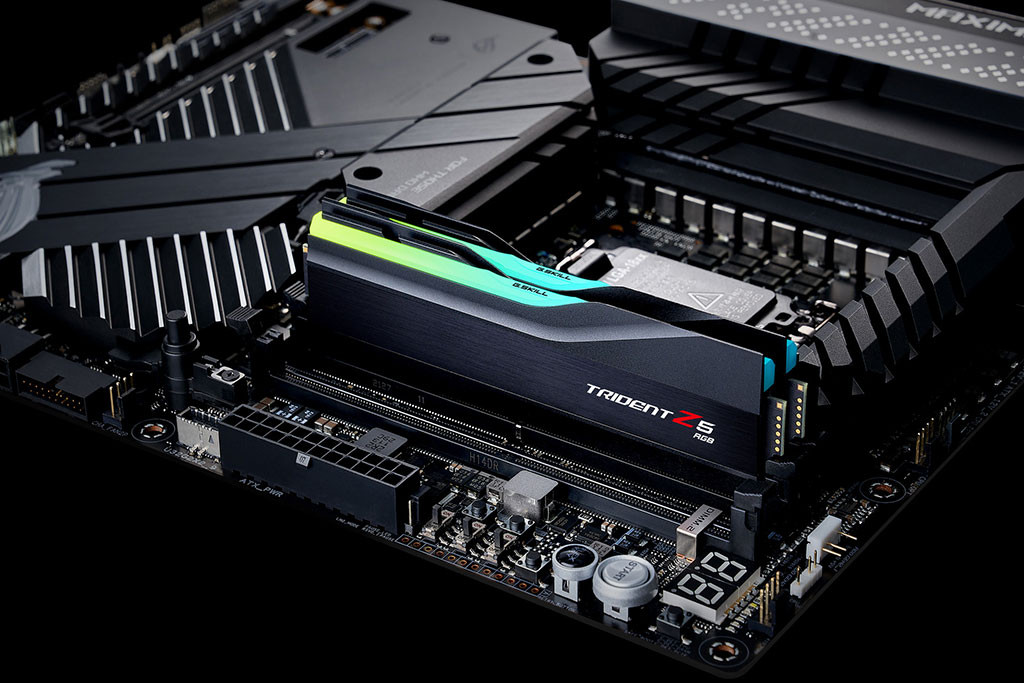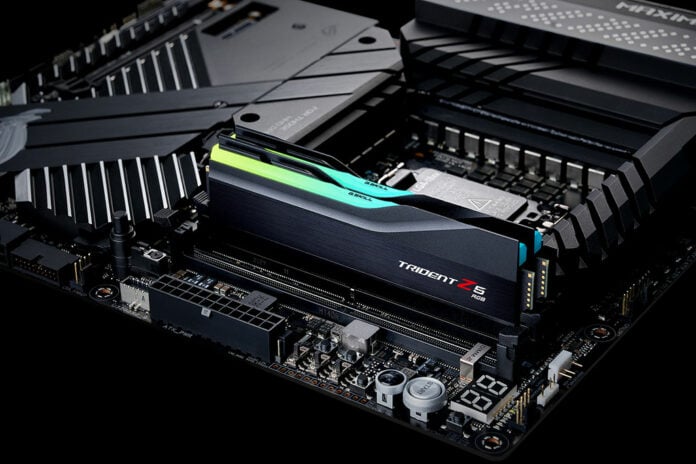Flagship Trident Z5 memory modules in a 32GB (2x16GB) kit, without special cooling.
Performance PC memory specialist G.Skill has been testing, tuning, and announcing DDR5 memory kits at an almost alarming rate as we approach the day these components will be useful for desktop PC DIYers (Intel Alder Lake launch day, tomorrow). Over recent weeks, it has announced the following:
- Oct 13: Trident Z5 DDR5-6400 CL36 memory kits announced
- Oct 20: Trident Z5 DDR5-6600 CL36 memory kits announced
- Oct 28: Trident Z5 DDR5-6800 CL38 memory kits announced
- Nov 2: Trident Z5 DDR5-7000 CL40 extreme speeds achieved
Please note the latest news isn’t the announcement of a Trident Z5 DDR5-7000 CL40 kit, rather that technicians at G.Skill have managed to get some of their previously-announced kits overclocked and stable at an incredible DDR5-7000 data rate.

G.Skill’s official news release says that the kit used was 32GB, via 2x16GB sticks. It is implied it was a G.Skill DDR5-6666 CL40 memory kit, and that it needed no particular cooling above and beyond the heatsink that is standard with these modules. In its blog post about reaching the DDR5-7000 milestone, the firm said such transfer rates were previously “only seen under liquid nitrogen sub-zero temperature cooling,” in the hands of OC experts.
The DDR5-7000 CL40 achievement was validated by G.Skill using the Memtest stability test, proof of which can be seen in the screenshot. For its premium DDR5 kits, G.Skill seems to favour high-performance Samsung DDR5 components, and again that was the case here.

For the best overall system performance you will want to balance the bandwidth and the CL values, according to your budget/availability. Looking at G.Skill’s Trident Z5 DDR5-6600 CL36 vs. its DDR5-6800 CL38 memory kits, for example, there isn’t much between them. Just how they will perform is dependant upon applications, but if historical norms hold true, going for lower latencies is generally the better bet.
Soon we will be seeing some OC experts get their mitts on DDR5 modules like the above, and from other brands. It will be interesting to see what the extreme overclockers can do with this memory in terms of frequencies and the impacts that has on benchmarks.

